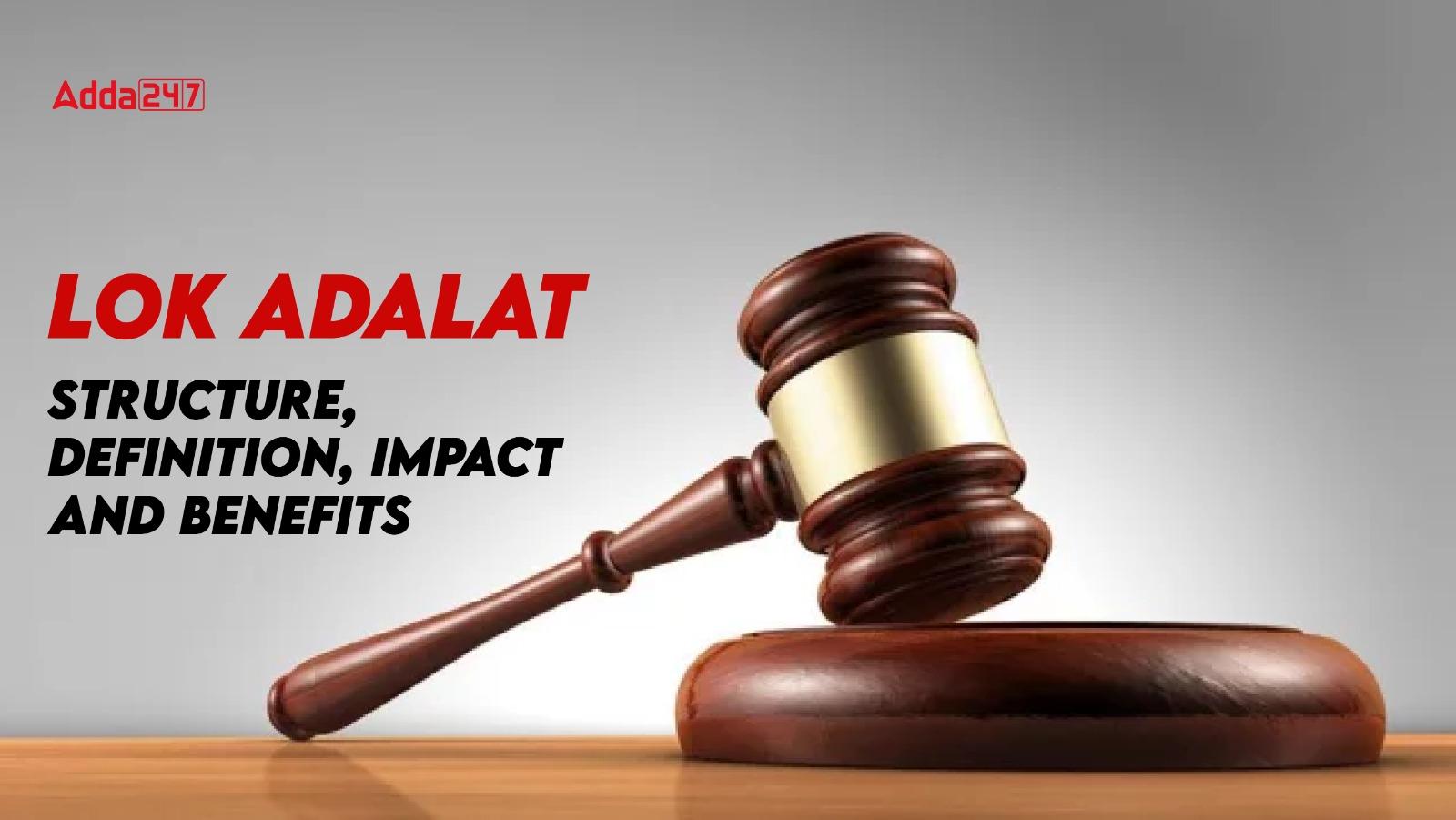Table of Contents
Lok Adalat is an alternative dispute resolution mechanism rooted in Gandhian principles. This system, reminiscent of ancient Indian adjudication, remains relevant today, offering informal, cost-effective, and swift justice to the common people.
What is Lok Adalat?
Lok Adalat, which translates to ‘People’s Court,’ is designed to provide accessible, cost-effective, and swift justice. Rooted in Gandhian principles and reminiscent of ancient Indian practices, Lok Adalats aim to settle disputes amicably without the formalities and expenses associated with traditional Courts.
Historical Background and Legal Framework
The concept of Lok Adalats emerged prominently in 1982 when the first camp was organized in Gujarat as a voluntary and conciliatory body without statutory backing. Recognizing its growing popularity and effectiveness, the Legal Services Authorities Act, of 1987, was enacted, granting Lok Adalats statutory status. This Act outlines the organization and functioning of Lok Adalats, embedding them within India’s legal framework.
Organization and Structure
Lok Adalats are organized by various legal services authorities, including-
- The State/District Legal Services Authority,
- The Supreme Court,
- High Courts, and
- Taluk Legal Services Committees.
These bodies can convene Lok Adalats at intervals and locations deemed appropriate. A Lok Adalat bench typically comprises a Judicial officer as the Chairman, a lawyer, and a social worker as members.
The National Legal Services Authority (NALSA), established under the Legal Services Authorities Act, of 1987, oversees the nationwide network of Lok Adalats. NALSA’s mandate includes providing free and competent legal services to the weaker sections of society, ensuring that justice is accessible to all.
Jurisdiction and Powers
Lok Adalats have the jurisdiction to resolve disputes pending in Courts or those that have not yet reached the Court system. They can settle disputes related to-
- Matrimonial and Family issues,
- Criminal cases (compoundable offenses),
- Land acquisition matters,
- Labor disputes,
- Workmen’s compensation cases, and
- Bank recovery cases.
However, Lok Adalats cannot adjudicate offenses that are not compoundable under any law.
The powers vested in Lok Adalats are akin to those of a Civil Court under the Code of Civil Procedure (1908). They can determine their procedures for dispute resolution, ensuring flexibility and efficiency. The proceedings are deemed judicial, and the awards given by Lok Adalats hold the status of a Civil Court decree, making them final and binding on the parties involved. Importantly, no appeal lies against the award of a Lok Adalat, ensuring swift resolution of disputes.
Benefits and Impact
Lok Adalats offer several significant benefits. They eliminate Court fees, and if a case is settled in a Lok Adalat, any Court fee already paid is refunded. This makes them an attractive option for the economically disadvantaged. The procedural flexibility and speedy trials mean that disputes are resolved more quickly compared to traditional Courts. Furthermore, parties can directly interact with the Judges, fostering a more collaborative and less adversarial atmosphere.
The awards given by Lok Adalats are binding, and their non-appealable nature ensures that settlements are final, preventing prolonged litigation. This not only reduces the burden on regular Courts but also provides a sense of closure to the parties involved.
Expanding the Reach and Effectiveness of Lok Adalats
For Lok Adalats to be truly effective, people must be made aware of their advantages and be willing to utilize them. More provisions and innovative approaches could further empower permanent Lok Adalats, making them a supplementary form of litigation for those who cannot afford or should not resort to traditional Courts.
National Lok Adalats are held at regular intervals across the country, from the Supreme Court to Taluk levels, disposing of a vast number of cases in a single day. Additionally, Permanent Lok Adalats, established under Section 22-B of the Legal Services Authorities Act, 1987, provide a compulsory pre-litigation mechanism for Conciliation and settlement of cases related to public utility services. Even if parties fail to reach a settlement, Permanent Lok Adalats have the jurisdiction to decide the dispute, with their awards being final and binding.
Conclusion
Lok Adalats play a crucial role in making justice accessible, affordable, and swift for all, particularly the weaker sections of society. By reducing the burden on traditional Courts and providing a platform for amicable dispute resolution, they uphold the principles of justice and equality. Expanding their reach and enhancing public awareness about their benefits can further strengthen this vital component of India’s legal system.



 TSPSC Group 1 Question Paper 2024, Downl...
TSPSC Group 1 Question Paper 2024, Downl...
 TSPSC Group 1 Answer key 2024 Out, Downl...
TSPSC Group 1 Answer key 2024 Out, Downl...
 UPSC Prelims 2024 Question Paper, Downlo...
UPSC Prelims 2024 Question Paper, Downlo...




